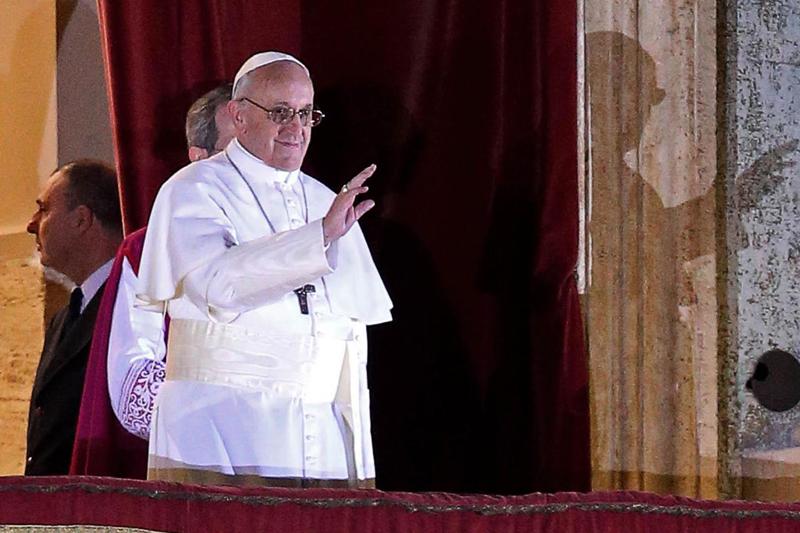Jorge Mario Bergoglio was elected as the 266th pontiff of the Roman Catholic Church Wednesday evening.

McClatchy-Tribune
In his address to the thousands of people standing in Saint Peter’s Square, he alluded to his being the first non-European to ascend the papacy.
“My brother cardinals have chosen one who is from far away, but here I am,” he said.
An Argentinian, born to Italian immigrants, Bergoglio has decided to call himself Pope Francis””no other pope has selected the name of the famed Saint Francis of Assisi.
Another first brought by the new pope: he is a priest of the Jesuit order.
Known for their commitment to higher education, the Jesuits were established by Saint Ignatius of Loyola in the 16th century. Jesuit priests gained notoriety for their willingness to work anywhere in the world, even in extreme conditions.
Pope Francis has received criticism for his conservative opinions regarding social issues. He opposes abortion, same-sex marriage, the ordination of women and liberation theology. Yet, he is known as a strong supporter of social justice.
The new pope was archbishop of Buenos Aires from 1998-2001. From 2001 to his current ascension to papacy, Pope Francis was cardinal archbishop of Buenos Aires.
Around the globe, excitement brews because of Pope Francis being Argentinian. He is the first pope to not come from Europe. For many, this seems to signal a new chapter in the church’s direction.
William Skuban is a professor of Latin American history and chairperson of Fresno State’s history department. The Catholic Church has played a substantial role in the development of Latin America, he said.
Skuban pointed out Pope Francis’ close relationship to Europe, saying Argentina is historically one of the most “Europeanized” nations in South America.
“He’s from Italians parents. He’s from Argentina ”” probably the most historically European country in Latin America,” Skuban said. “Still, the first pope from the Americas ”” there’s something to be said about that.”
Kenneth Monreal, a senior in the Smittcamp Family Honors College majoring in history, waited in anticipation for the election of the new pope. Monreal spoke of the Catholic Church’s on-going struggle to keep parishioners in the midst of secularism and other religious beliefs. He said if the Catholic Church hopes to retain members, a leader who understands the people is needed.
“They say that he’s humble, that he takes public transport, pays for his own hotel rooms. I read those things and I don’t know how true all that is but, I mean, I think there’s a possibility he may go more in right direction.”
For Monreal, Pope Francis’ Argentinian background provides a sense of closeness to the papal state.
“We always feel really isolated from the pope and the papal state. You know, it’s always a European. “





Kristin • Mar 15, 2013 at 2:42 pm
As a quick look at the front page of the New York Times reveals, Pope Francis is not, in fact, the first non-European ever to hold the position. Rather, he is the first pope from the Americas, and the first non-European to lead the church in 1,200 years.